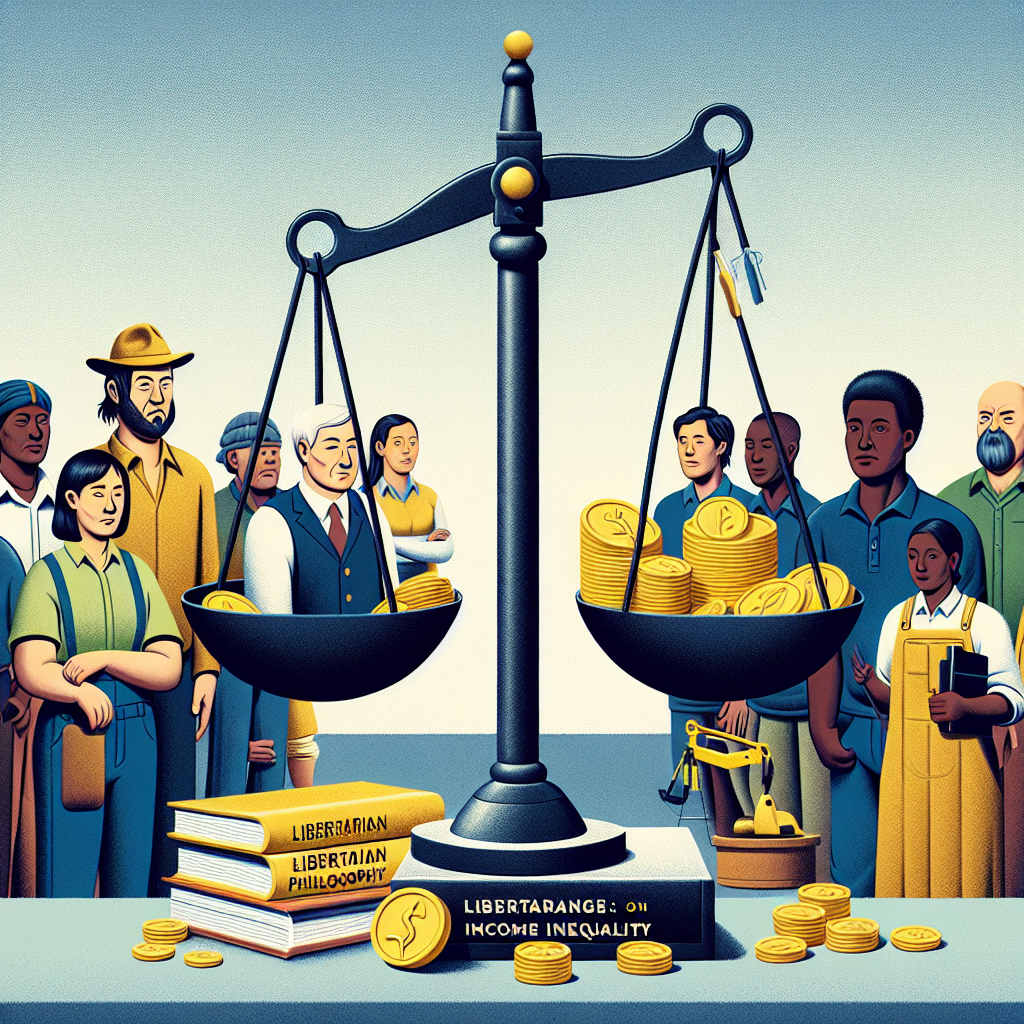Libertarian Responses to Income Inequality: A Different Perspective
Income inequality is a pressing issue that sparks passionate debates across various economic and political spectrums. While many advocate for government intervention and redistribution of wealth as solutions to this problem, libertarians approach these complex issues from a distinctly different viewpoint. This article outlines the libertarian perspective on income inequality, exploring the philosophical underpinnings, economic arguments, and proposals for addressing this issue.
Understanding Libertarian Philosophy
Libertarianism is a political philosophy that emphasizes individual freedom, personal responsibility, and minimal government intervention. Libertarians argue that a free-market economy, based on voluntary exchanges and limited regulation, is the best way to foster prosperity, innovation, and ultimately, social equity.
The Moral Argument Against Forced Redistribution
One of the foundational beliefs among libertarians is the principle of self-ownership. They argue that individuals have the right to keep the fruits of their labor. From this perspective, forced wealth redistribution, often implemented through taxes, is considered a violation of individual rights. Libertarians contend that the morality of wealth distribution should not hinge on equality of outcome but rather equality of opportunity.
The Role of the Free Market in Reducing Income Inequality
Libertarians believe that a vibrant free market is the most effective mechanism for addressing income inequality. They argue that when individuals are free to pursue their interests without excessive regulation, innovation flourishes, leading to overall economic growth. This growth, in turn, creates new opportunities, potentially allowing those in lower-income brackets to improve their economic situations.
Wealth Creation vs. Wealth Redistribution
Critics of government interventions often point out that while redistribution may provide temporary relief for some, it does not create new wealth. Instead, libertarians argue for policies that promote wealth creation, which they believe will naturally reduce income inequality over time. By encouraging entrepreneurship, reducing regulations, and fostering open markets, they posit that society as a whole will benefit.
Education as a Tool for Equal Opportunity
Libertarians advocate for educational reforms as a means to address income inequality. They argue that access to quality education is crucial for leveling the playing field. Libertarians support school choice, such as charter schools and education vouchers, believing that competition will enhance educational outcomes and empower individuals from lower socio-economic backgrounds.
Encouraging Vocational Training and Skill Development
Libertarians also emphasize the importance of vocational training and skill development. By investing in programs that equip individuals with marketable skills, they argue that everyone can achieve a higher economic status. Such initiatives, driven by private enterprises, non-profits, or community organizations, would help bridge the gap between education and employability without state intervention.
The Dangers of Excessive Regulation
A central tenet of libertarian thought is that excessive government regulation often exacerbates income inequality rather than alleviating it. Many libertarians argue that regulations can create barriers to entry for small businesses and entrepreneurs, disproportionately affecting those from lower-income backgrounds. By reducing regulatory burdens, they believe that a more level playing field can be established, allowing for greater participation in the economy.
Addressing Crony Capitalism
Libertarians criticize what they call “crony capitalism,” where government policies favor certain businesses or industries to the detriment of fair competition. They argue that such favoritism leads to greater wealth concentration and inequality. By advocating for policies that eliminate special privileges for businesses, libertarians hope to create a more equitable economic landscape.
The Case for Philanthropy in Addressing Inequality
Many libertarians promote the idea of voluntary charity as a means of addressing income inequality. Unlike government programs funded through taxation, philanthropy allows individuals to decide how and where their charitable contributions can make the most difference. This approach not only promotes personal responsibility but also encourages a sense of community and social solidarity.
Building a Culture of Giving
Libertarians believe that cultivating a culture of giving can be more effective than government-mandated redistribution. They argue that when individuals feel a personal connection to their philanthropic efforts, they are more likely to invest in sustainable solutions that empower individuals rather than perpetuate cycles of dependency.
Conclusion: A Unique Lens on Income Inequality
Libertarians offer a unique perspective on the issue of income inequality, emphasizing individual rights, free markets, and voluntary action. While their views may diverge significantly from conventional welfare state solutions, their focus on opportunity, innovation, and personal responsibility presents a compelling alternative. By advocating for minimal government intervention and fostering an environment conducive to wealth creation, libertarians believe they can contribute to a fairer society where everyone has the chance to succeed.
As society grapples with the implications of income inequality, understanding these diverse perspectives can enrich the dialogue and lead to more nuanced and effective policies.
Share this content:








Post Comment